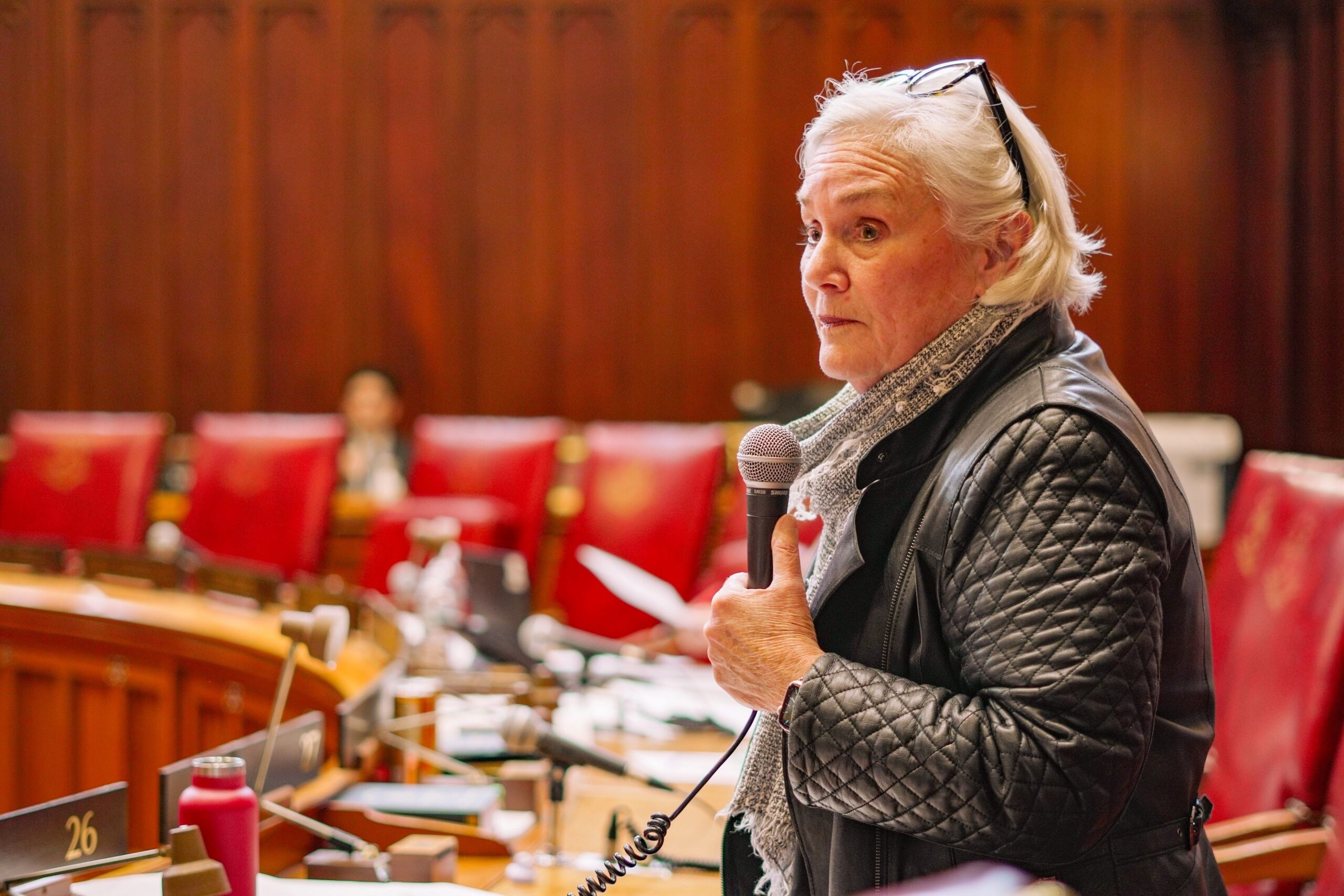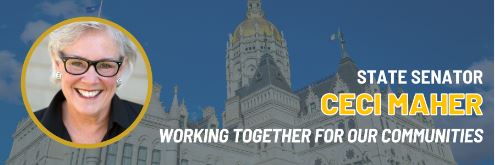SENATOR MAHER LEADS SENATE APPROVAL TO IMPROVE EARLY CHILDHOOD NUTRITION, ENHANCE CAMP OVERSIGHT, BETTER SUPPORT DISCONNECTED YOUTH

Senator Maher speaks Tuesday on the Senate floor.
Today, State Senator Ceci Maher (D-Wilton), Senate Chair of the Committee on Children, led the Senate in its passage of flagship legislation seeking to improve early childhood nutrition through increased access to food, provide better oversight over summer camps and improve the state’s support for disconnected youth – those ages 16-24 who are not employed or pursuing education – through increasing oversight and improving data sharing.
Senate Bill 6, “An Act Concerning Resources and Supports for Infants, Toddlers and Disconnected Youths,” Senate Democrats’ leading legislation supporting youth in Connecticut in 2025, seeks to ensure early childhood education programs are able to offer nutritious food to participants and disconnected youth are reconnected to schools and workplaces. It will further take steps to support kindergarten preparatory academies in the state and better protect youth attending summer camps by closing a key loophole impacting them.
“The last half-decade exposed and worsened disparities throughout our state, and addressing those disparities now is crucial if we are going to start turning the tide,” said Sen. Maher. “This bill will help reduce youth hunger by utilizing new connections between early childhood care programs and state offerings. It will help bring disconnected youth back into education and employment by increasing frequency and depth of communications. We’re looking to provide the early-life resources that lead to better overall outcomes for children and I’m excited to see the results once this bill becomes law.”
Senate Bill 6 has a variety of provisions in its language, most prominently encouraging more use of the federal Child and Adult Care Food Program in early child care centers, group homes and family care homes. Figures from 2019 show that these organizations being unaware of ability to participate in these programs can cost Connecticut up to $30 million in aid each year, with more than 20,000 children in low-income areas potentially benefitting.
It further seeks to expand state oversight of state reports on disconnected youth by increasing the groups reviewing them and incorporating additional data from a variety of state departments and programs, including the impact of child care subsidies and early childhood family support programs.
Additionally, the legislation requires municipal youth camps to obtain or maintain licensing through the Office of Early Childhood. This measure comes after serious abuse happened at a municipal camp in Bethany and seeks to ensure camp staff and leadership undergo background checks.
It further expands the Early Childhood Cabinet and better updates public information about children’s development including the Help Me Grow program, which connects families with information and education to maximize their children’s early success. It will also analyze the use of a mobile application, Sparkler, which provides young families development screenings and access to support programs to improve its efficiency and usage.
The bill, co-sponsored by more than two dozen legislators, received support in public testimony from prominent Connecticut health institutions. Paul Dworkin, Executive Vice President for Community Child Health at Connecticut Children’s, said the bill raises issues of critical importance to the optimal health and wellbeing of children and youth. The founder of Help Me Grow, Dworkin said the bill’s connection points to the critical resource will directly benefit families statewide.
The American Heart Association lauded SB6’s intentions, applauding all efforts to support early childhood education, noting a child’s development relies directly upon access to resources and that birth-to-five programs for disadvantaged children can deliver 13% return on investment.
The Hartford Foundation for Public Giving praised the legislation’s approach toward support for young children and families, noting expansion of youth nutrition access and supports for teenage parents will directly benefit communities in years to come.
The bill previously passed the Committee on Children by a 12-5 vote on March 6 and the Appropriations Committee by a 38-12 tally on May 5. It next heads to the House for further consideration.
Share this page:
